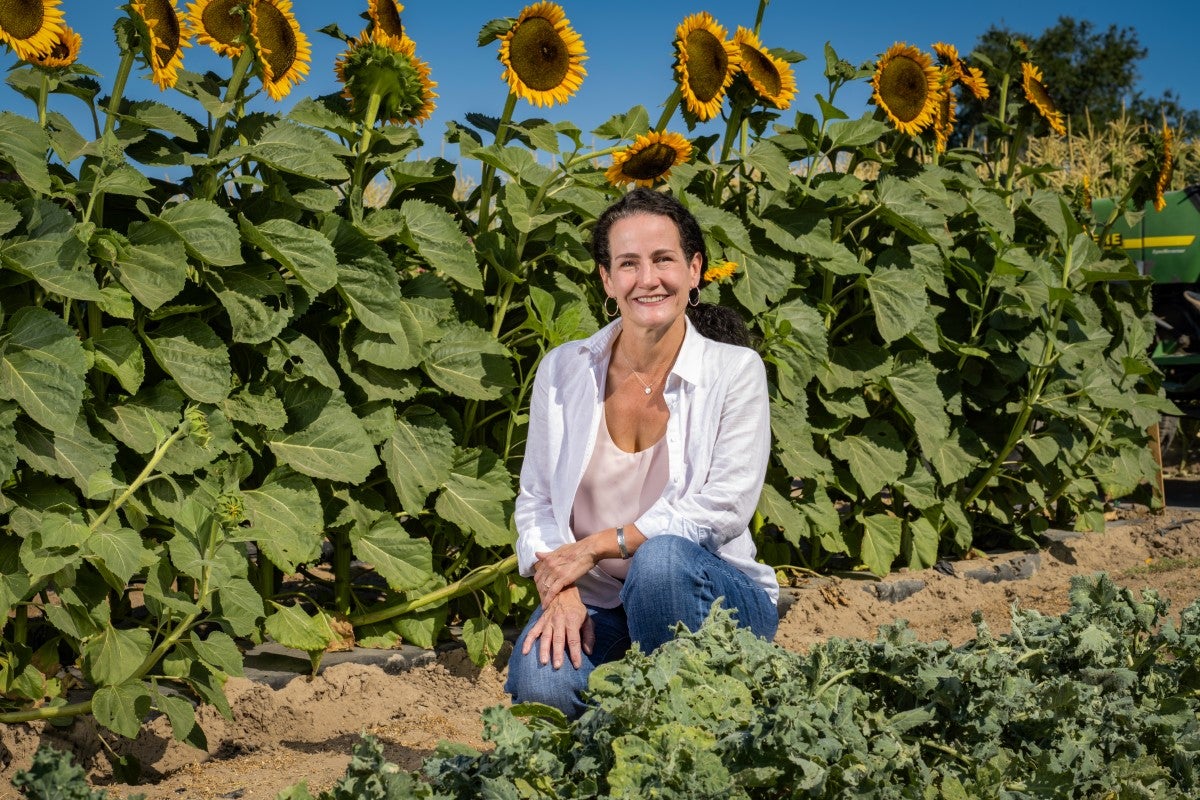
Boise State’s Center for School and Community Partnerships received $16.1 million — the largest single sponsored project award in university history — from the United States Department of Agriculture. The center, directed by Lindsey Turner, a professor in the College of Education, is one of four groups in the U.S. that will collaborate on an initiative to spark local innovations and partnerships to build a just and resilient food system in American schools.
“Studying school nutrition has been my passion for more than 20 years and it is such an honor to lead this initiative in partnership with USDA, my research collaborators and our practice partners,” Turner said. “During the pandemic we saw that so many school nutrition directors worked hard and innovated to address hunger in their communities. Learning from that work, this initiative will provide both support and flexibility to districts as they find ways to partner with growers and producers to keep students well- nourished.”
Turner’s team proposed a project that will provide grant funding and expert technical assistance to school districts as part of the USDA’s Healthy Meals Incentives for Schools initiative, an effort to improve the nutritional quality of school meals. The project will work with 35 rural school districts across the country.
Play Farm to Schools
Video has closed captions and a transcript is provided on this page.
“What I hope to be able to do is to say, ‘Here’s a problem that school districts are having,’ or ‘Here’s a problem that farmers are having with getting their fresh fruits and vegetables into schools,’ and then figure out solutions,” she said. “We can consider what has worked well or what might be a promising innovation. We can try ways to support local farm-to-school connections, then share the lessons learned.”
In the coming years, the project will expand to address food issues in suburban and urban school districts.
“We are proud that Dr. Turner’s innovative and impactful scholarship and service have won such significant support, and we aim to engage in projects like this that make a difference in real people’s lives,” said Boise State President Marlene Tromp.
Video Transcript
(upbeat, acoustic music)
(sprinkler)
[Lindsey Turner, Professor, College of Education]: So I’ve always been interested in the factors that help kids to be healthy and grow and thrive as they become adults. And a big part of that is keeping them well-nourished. And this is a personal passion for me. As a mom, I wanted my kids to be able to garden in our backyard and to raise them knowing how to dig in the dirt. And I’ve also had the huge privilege to be able to do that type of work in my professional career as well. So a lot of my work focuses on nutrition security, which is basically making sure that people have access to healthy food that allows them to grow well and thrive.
(birds chirping)
[Lindsey]: So our project is called SCALES, and that is Supporting Community Agriculture and Local Education Systems. And the goal really here is those two pieces brought together to support these local producers and growers who are so important to their communities, small family farms, and then also to help those local food systems. So our project will be working with 35 school districts across the country to start with, and then later on with another cohort of 35 school districts.
[Lindsey]: It’s really a win/win when school districts are able to source produce foods and beverages from their local farmers and producers. It helps the suppliers and then it also helps the schools as well. And the whole goal of our work in this endeavor is to create more resilient food systems, and one way to do that is to increase the amount of food that’s sourced locally that really supports those farmers and then gets that fresh, healthy produce into schools.
(airplane)
[Angie Swallow, Manager Garrett Ranches]: That’s a huge passion of mine is serving and supporting the local communities, but when we can bring what we do to a school, for example, I also am a teacher, my mother was a teacher, and so education is a huge part of what I do when I’m not here. (laughs) And so being able to offer fresh, locally grown produce that we grow ourselves with love, I feel like is just a great way to be connected to our community. Whether that means students, whether that means their families, I feel like it really keeps that unity going.
[Lindsey]: It’s really humbling to be awarded this project. It’s a great honor to be part of this group that’s working with the USDA on these various projects across the country to create a more resilient school food system. For me personally, it is the the cap of my career. I’ve been working towards this for 20 years, and this combines so many things that I’m passionate about. And then it also allows me to do this work at Boise State and support these rural communities that I’m so passionate about helping them to thrive.
(birds chirping)
(light music)
